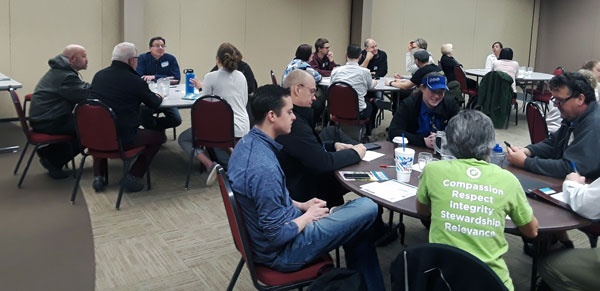On April 9th, I was able to participate in a workshop in Eden Prairie focusing on the new organics recycling policy being implemented by Hennepin County. This ordinance, called Ordinance 13, requires certain businesses that create a large amount of organic waste located in Hennepin County to begin organics recycling starting January 1st, 2020.
The goal of the workshop was to make sure businesses are able to make this important transition next year with minimal disruption. The organizers—including me—local volunteers, and folks with Hennepin County wanted to make sure business leaders had a chance to learn about the new ordinance and its requirements long before it is rolled out next year. We also wanted give them a chance to ask questions, learn more about available resources, and discuss best practices from businesses that have already made the switch to organics recycling.
The event itself was a great experience with over 25 representatives from local businesses that would be affected including restaurants, golf courses, senior living facilities, and grocery stores. There was also an informative presentation from Hennepin County staff about the new rules and why it’s important that we all work together to expand organics recycling in Minnesota. We heard from two local business leaders who have successfully implemented organics collection and recycling including a representative from the Eden Prairie Mall—a pretty big operation when it comes to solid waste.
Moreover, there was a lot of great discussion about the individual needs of various business themselves. After all, each one is a bit different and figuring out how to make the switch as seamlessly as possible can entail different answers.
This new policy change has the potential to do a lot of good in Hennepin County.
After all, a large amount of waste that ends up in landfills can be composted. Composting reduces both the amount of trash that ends up in landfills and the carbon footprint that is associated with these facilities—the amount of energy it takes to haul garbage to them and their long-term tendency to release greenhouse gases.
Finally, old landfills can represent a significant threat to water quality due to runoff or ground water contamination. By recycling organics today, we can reduce future problems with landfills.
If you would like to learn more about this new organics collection ordinance, or how you can engage in organics recycling in your home of business, please contact me at johna@conservationminnesota.orgor 612.767.1571.
